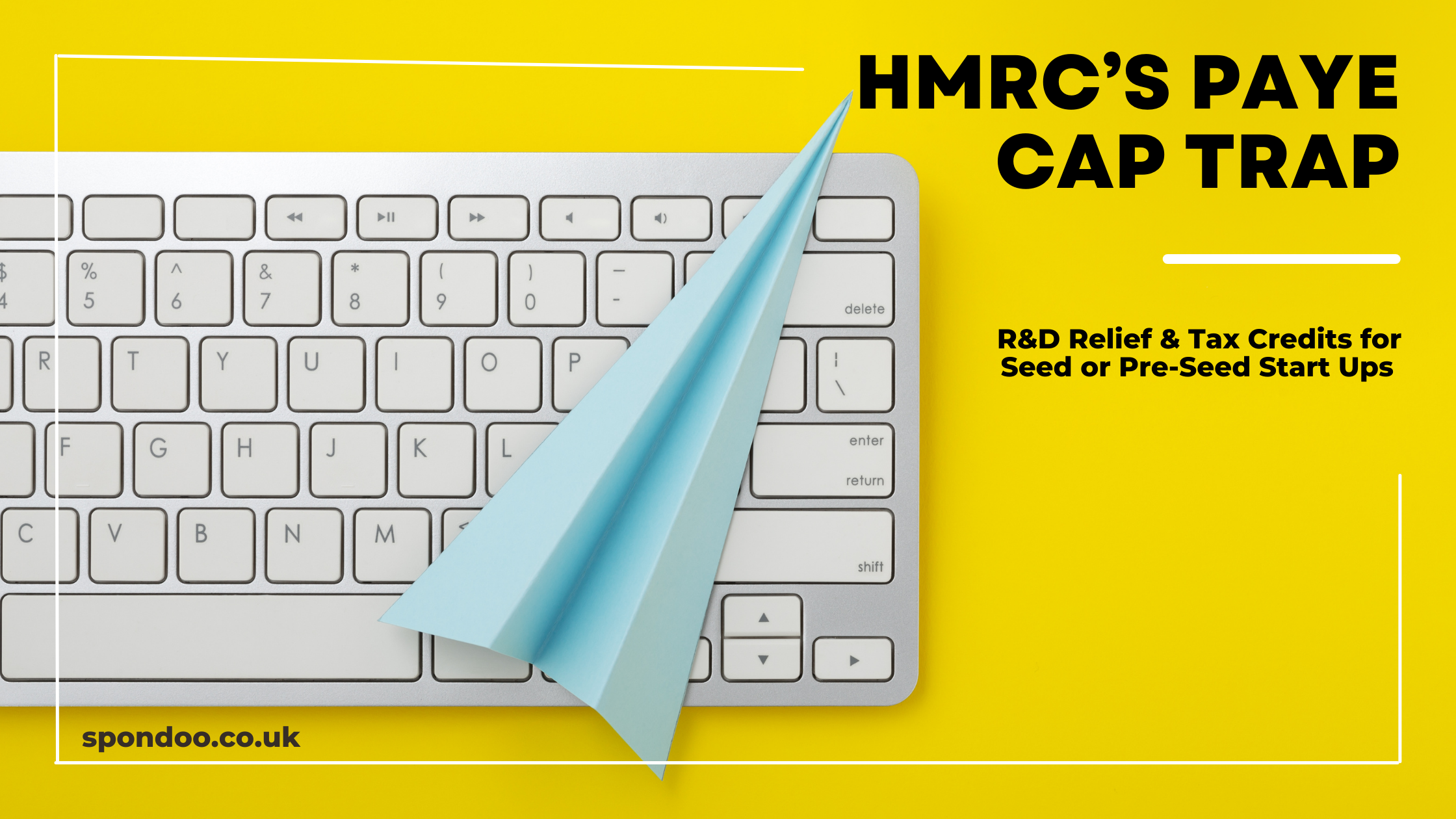Understanding the new PAYE Cap for Research & Development (R&D) Relief
For accounting periods which began on or after 1 April 2021, the claimable tax credit payment for loss-making businesses is limited to £20,000 plus 300% of its total PAYE and National Insurance Contributions. They can only claim an exemption from this cap if the business can prove it is creating or actively managing intellectual property with less than 15% of its R&D costs are subcontracted or using employees of a connected party.
Key specifics
We have listed some points to consider when trying to assess if this will impact you or your business:
- Purpose of the PAYE Cap on R&D – it is designed to address HMRC’s concerns around businesses abusing R&D tax relief legislation, while also limiting the amount of funds going overseas to support non-UK innovation expenditure.
- Payable Tax Credits Only – the restriction does not apply to R&D relief applied to taxable profits in the current or future accounting periods, only on the claims for payment of the 14.5% R&D tax credits. On this basis, profit-making businesses may not be materially impacted if they do not need the immediate cashflow to fund current operations. The business impacted by this PAYE cap will be start-ups or existing businesses incurring losses and wanting to request payment of the tax credit in a loss-making accounting period.
- The Exemption and it's meaning – to create or manage intellectual property, you need to have justifiable IP such as registered patents, trademarks, registered designs, copyright, design rights, performance rights or plant breeders rights.
How the numbers work
Assuming the exemption does not apply, a business with claimable R&D expenditure of £100,000 would have a R&D claimable loss of £230,000. The PAYE Cap does not restrict the business from offsetting the losses against current or future accounting periods.
However, should the business making losses wish to surrender the £230,000 for a 14.5% payable tax credit of £33,350, the PAYE/NIC Cap would need to be considered, as per the scenarios below:
- Scenario 1 - if the business's total PAYE/NIC liability for all employees for a certain accounting period comes to £25,000 for the year, their R&D cap would be £20,000 plus (300% x £25000) at £95,000. This means that the £33,350 is easily within the threshold, so the entire tax credit would become payable
- Scenario 2 – if the business has lower PAYE/NIC bills of just £1500 for the period, their R&D cap would be £20,000 plus (300% x £1,500) at £29,500. On this basis, they would only be able to claim a tax credit payable of £29,500, leaving the remaining (£3,850 x 100/14.5) to be offset against future profits.
Planning Points
Below are potential points tax planning to consider but must not be relied upon in their entirety when making your decisions as other factors may apply.
- Employment Decisions and Outsourced Contractors – consider your R&D claim when making future employment decisions or deciding to use outsourced providers (particularly overseas). These rules may change your decision as it is beneficial to employ UK staff on your own PAYE Scheme.
- Start-Up Founders – if you are a start-up founder paying yourself a tiny salary or nothing at all, you might want to reconsider this strategy to ensure that you increase your PAYE/NIC cap.
- Salary & Dividends – whilst loss-making businesses cannot pay dividends, it is important to note that where a company’s innovation work is primarily conducted by founders taking a small salary followed by dividends, this could also have issues that need to be considered. Firstly, dividends cannot form part of your qualified R&D expenditure thus limiting the claim for R&D. Secondly, as dividends do not fall within your PAYE & NICs liabilities for the business, you could be restricted your PAYE/NIC cap unnecessarily.
- Cashflow vs Actual Benefit – it is important to note that when a loss-making company opts to take the 14.5% tax credit today, they are giving up offsetting the losses against a tax rate of 19% in future periods. If you are close to profitability, it might not be a sensible decision with or without this PAYE/NIC cap. From April 2023 it should also be considered that the main rate of corporation tax is going to increase from 19% to 25%, although this only gradually impacts companies with profits over £300,000 per year.

